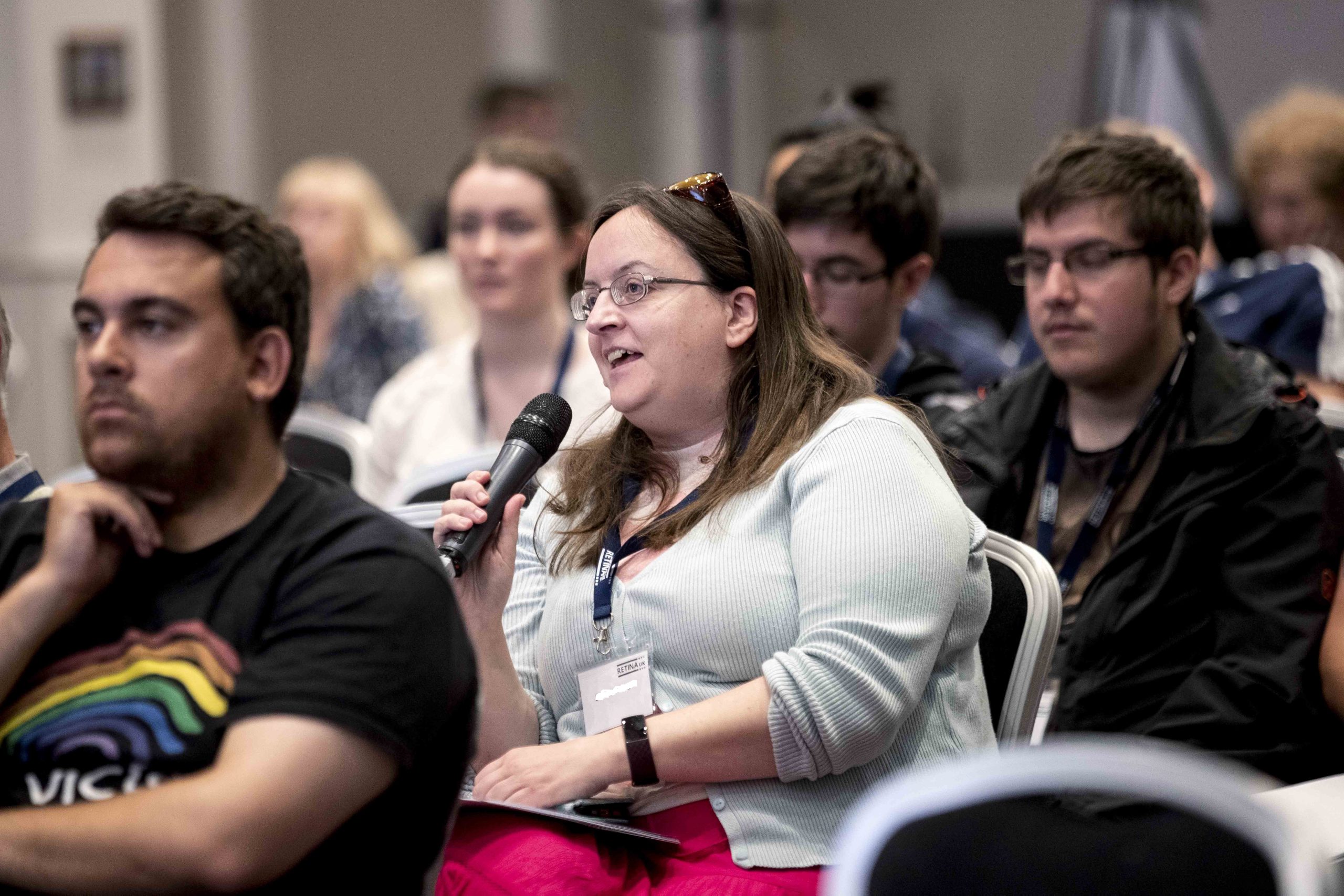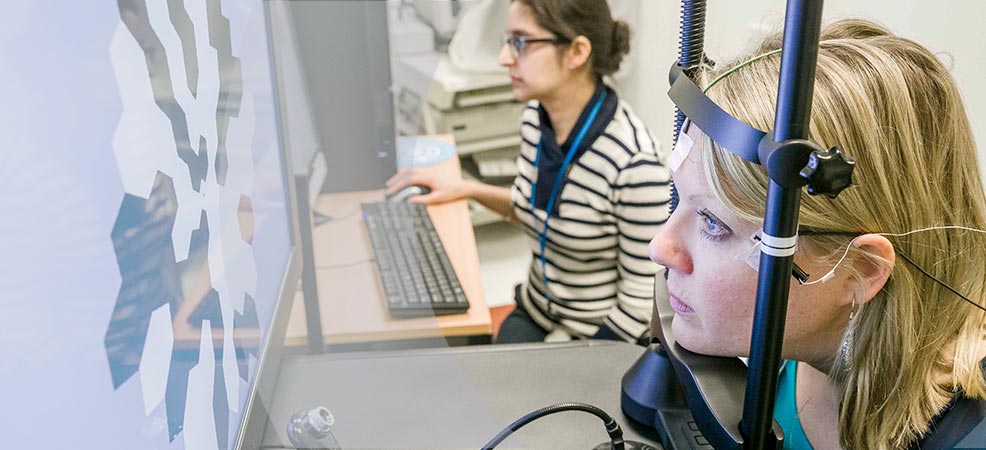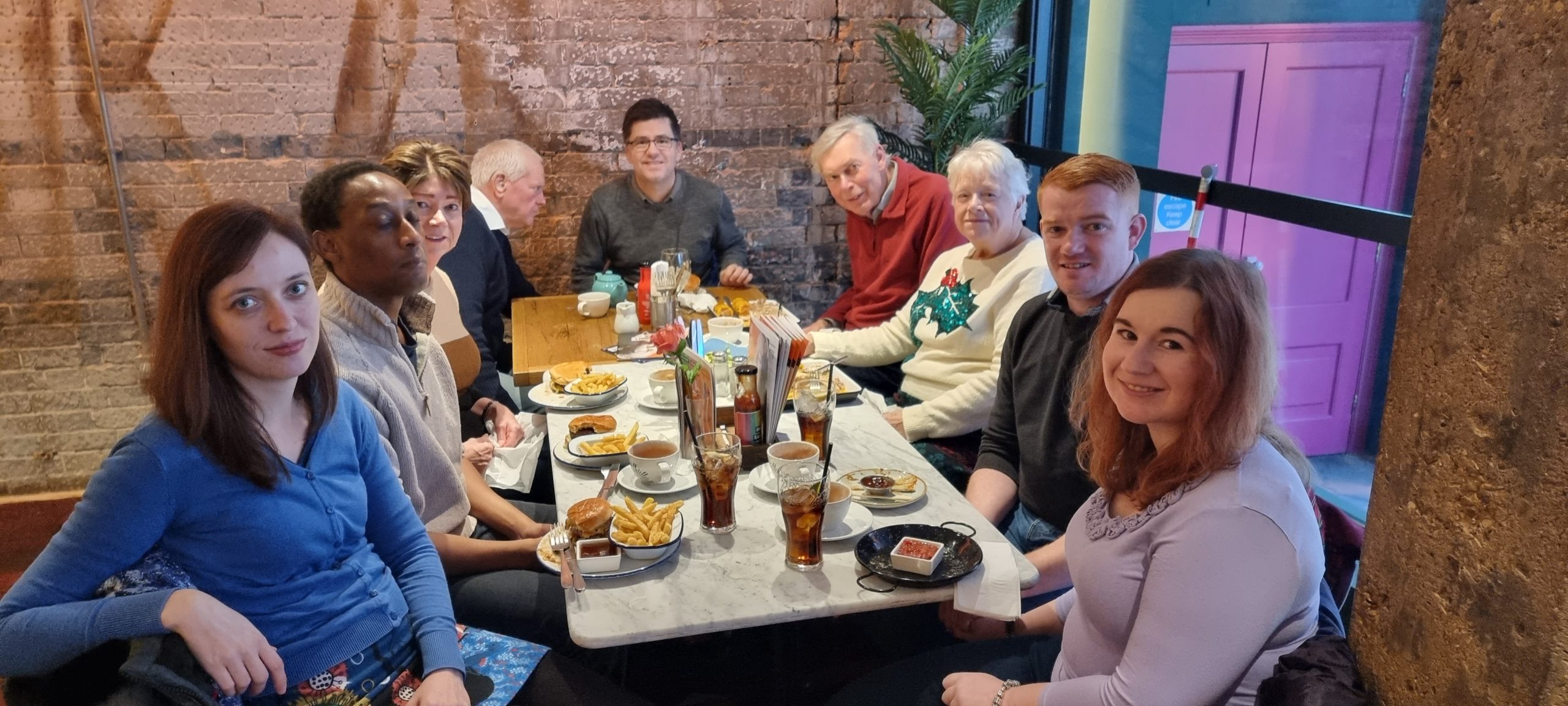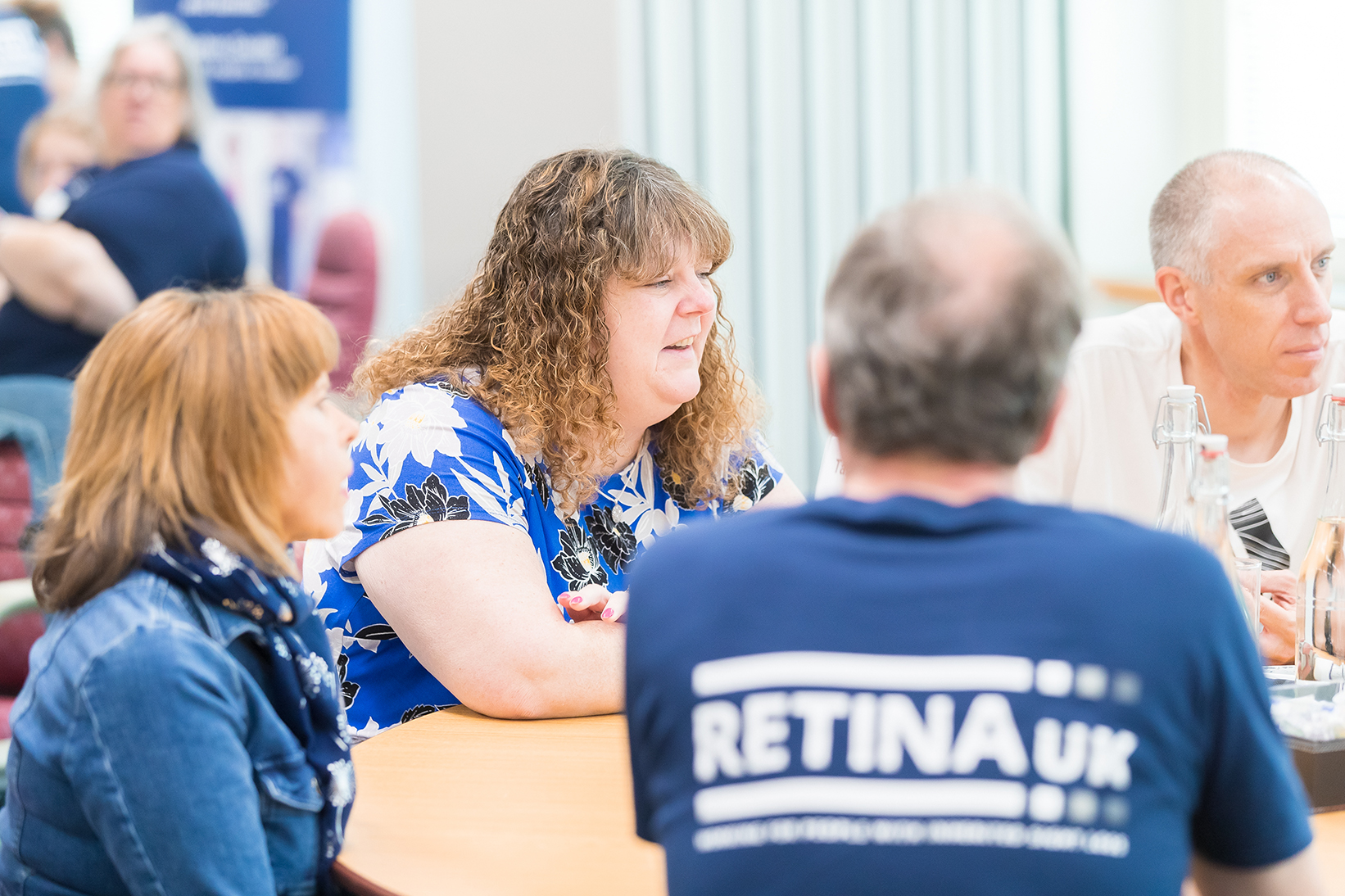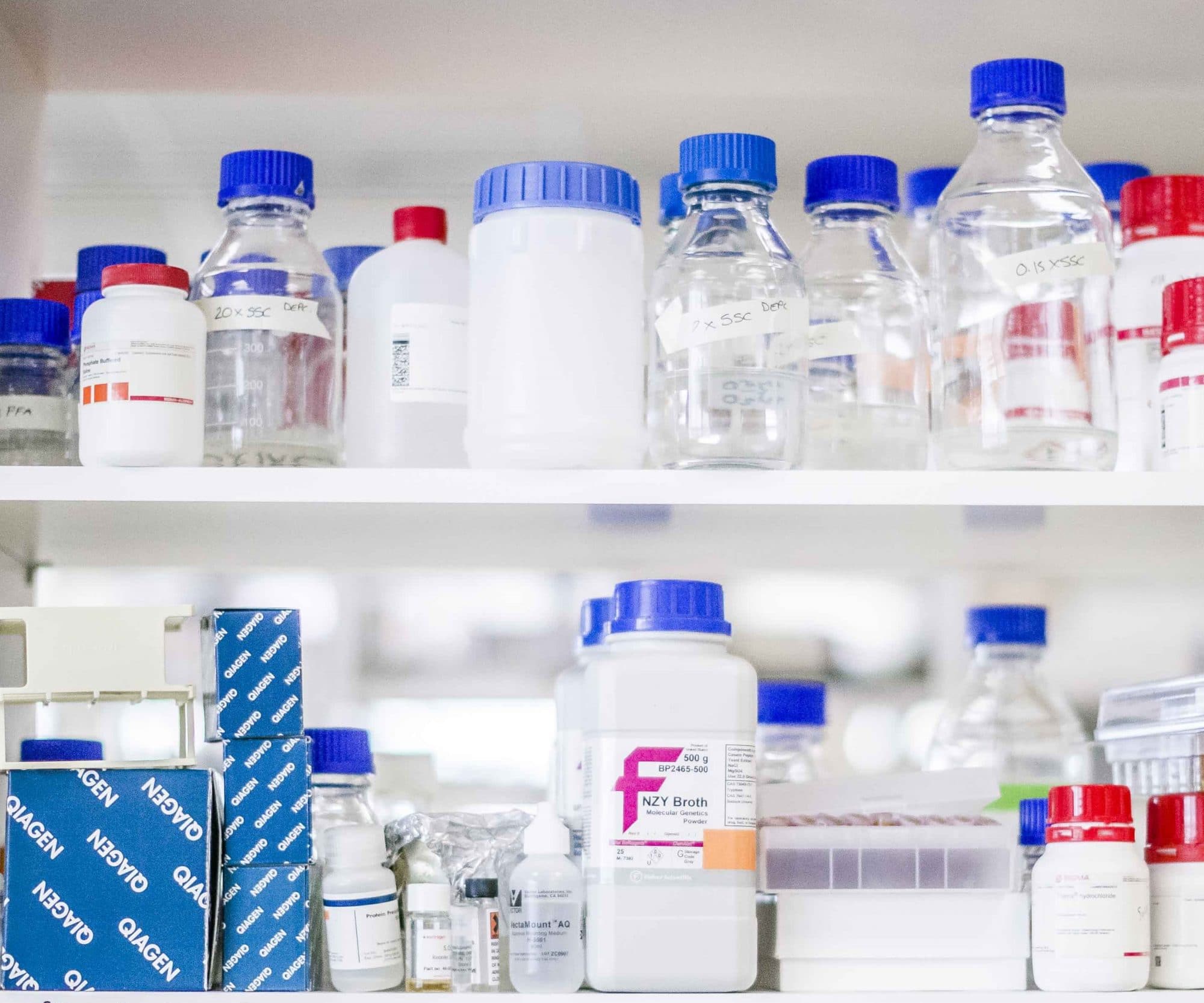It results in an absence of colour vision along with additional visual problems. There are two main types of cells in the retina responsible for sensing light: rod cells and cone cells. We use our rod cells at night time and in low light, but they are not sensitive to colour and do not provide detailed vision.
We use our cone cells in bright light; they are responsible for our colour vision and for our central, reading vision. Achromatopsia results from impairments in cone cell function. Individuals with this condition have reduced visual acuity and are completely or almost fully colour blind; however, the condition is not progressive and it does not lead to blindness.
Symptoms
The condition is often first noticed in a young child by their parents, as children with achromatopsia may dislike bright lights and often avoid daylight (known as photophobia). Nystagmus (involuntary, jerky eye movements) is another symptom of the condition. The child’s behaviour may also suggest that vision is reduced or blurred. However, most children with achromatopsia have no problem with mobility or getting around.
Cause
To date (September 2024), mutations in any one of six genes are known to cause achromatopsia. The condition is inherited in an autosomal recessive manner, which means that an affected individual inherits a mutated copy of an achromatopsia-linked gene from both parents. Most often, the parents of an individual with achromatopsia each carry one copy of the mutated gene, but do not show signs and symptoms of the condition. Find out more at RetinaUK.org.uk/genetics/inheritance-patterns.
Treatment
The vision of people with achromatopsia decreases as the levels of light increase. In regular home lighting indoors, or outdoors just after dawn or just before dusk, some people with achromatopsia adapt to their reduced level of visual function without resorting to tinted lenses. Instead, they use visual strategies such as squinting or shielding their eyes or they position themselves in favourable light. Others sometimes wear medium tinted lenses in such settings. However, in full sunlight outdoors, or in very bright indoor spaces, almost all people with achromatopsia use very dark tinted lenses in order to function with a reasonable amount of vision, since they do
not possess functioning cone photoreceptors needed in order to see well in these types of conditions.
Two of the most common genes linked to the condition (CNGB3 and CNGA3) account for 75% of achromatopsia cases, making this condition potentially amenable to gene therapy, and a number of clinical trials are underway. These trials aim to deliver a healthy copy of the affected gene to the retina, in theory restoring cone function.
Clinical trials
Visit RetinaUK.org.uk/medical-research/joining-the-research-effort for clinical trials information. If you are considering joining a trial always discuss it with your usual ophthalmologist or family doctor first. Participation in a genuine clinical trial will never require payment.
You can also read about possible treatment approaches for retinal disease at RetinaUK.org.uk/medical-research/approaches-to-treatment and the latest news about research at RetinaUK.org.uk/research-news.
Many treatment approaches are specific to a particular gene fault, so it is important that those affected by the disease are referred for genetic testing so that they can access new treatments and clinical trial opportunities.
For support
The Retina UK Helpline provides information, support and signposting for people affected by inherited sight loss as well as healthcare and education professionals.
Contact 0300 111 4000 (9.00am – 5.00pm Monday to Friday and Tuesday and Thursday evenings 5.00pm – 8.00pm) or email [email protected].
Condition-specific information
Gene Vision gene.vision/knowledge-base/achromatopsia-for-patients. Retina UK joint funded Gene Vision and input into accessibility and content.
Getting involved in research
Those who join the Retina UK Lived Experience Panel receive an email from us when we are made aware of participation opportunities such as focus groups, surveys and research projects. Sign up at RetinaUK.org.uk/get-involved/lived-experience.


